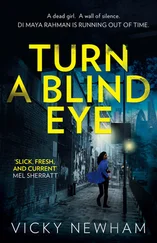Catharine Dworkin - Pornography and Civil Rights - A New Day for Women's Equality
Здесь есть возможность читать онлайн «Catharine Dworkin - Pornography and Civil Rights - A New Day for Women's Equality» весь текст электронной книги совершенно бесплатно (целиком полную версию без сокращений). В некоторых случаях можно слушать аудио, скачать через торрент в формате fb2 и присутствует краткое содержание. Жанр: Старинная литература, на английском языке. Описание произведения, (предисловие) а так же отзывы посетителей доступны на портале библиотеки ЛибКат.
- Название:Pornography and Civil Rights: A New Day for Women's Equality
- Автор:
- Жанр:
- Год:неизвестен
- ISBN:нет данных
- Рейтинг книги:5 / 5. Голосов: 1
-
Избранное:Добавить в избранное
- Отзывы:
-
Ваша оценка:
- 100
- 1
- 2
- 3
- 4
- 5
Pornography and Civil Rights: A New Day for Women's Equality: краткое содержание, описание и аннотация
Предлагаем к чтению аннотацию, описание, краткое содержание или предисловие (зависит от того, что написал сам автор книги «Pornography and Civil Rights: A New Day for Women's Equality»). Если вы не нашли необходимую информацию о книге — напишите в комментариях, мы постараемся отыскать её.
Pornography and Civil Rights: A New Day for Women's Equality — читать онлайн бесплатно полную книгу (весь текст) целиком
Ниже представлен текст книги, разбитый по страницам. Система сохранения места последней прочитанной страницы, позволяет с удобством читать онлайн бесплатно книгу «Pornography and Civil Rights: A New Day for Women's Equality», без необходимости каждый раз заново искать на чём Вы остановились. Поставьте закладку, и сможете в любой момент перейти на страницу, на которой закончили чтение.
Интервал:
Закладка:
are so meaningless they could mean almost anything. As a result, they have meant almost nothing, being (actually) dependent upon the viewpoint of the observer. This makes obscenity law less useful the more pornography is a problem, because
the more pornography is consumed, the more observers’
views are shaped by it, and the more the world it makes confirms that view. Privacy law has further institutionalized pornography by shielding the sexual sphere, where so much of pornography’s violence to women is done, including by outright guaranteeing the right to possess pornography in the home, the most violent place for women. Pornography has
also been legally institutionalized through decrying but permit ing pimping and prostitution (of which pornography is one form), making sure prostitutes are the ones who pay for
doing what the entire social system has given them, as women,
little choice but to do in one form or another.
The law has helped make pornography a social institution
more indirectly as wel . The law of rape makes the pornographic assumption that women may consent to forced sex.
The law of child custody applies the pornographic definition
of the female to mothers. Women who have sexual relations
Pornography and Civil Rights
27


with a man or men not the father of their children have long
been considered loose women, hence not good mothers.
Lesbian mothers have found that a woman who is not being
sexually used by a man is considered an inadequate woman,
hence also not a good mother. The frequent failures of attempts under sex-discrimination law to get women the same pay as men when they do dif erent work of comparable value
permits job definitions and pay scales to continue based on
pornographic definitions of women’s proper role as men’s
hierarchical subordinates, as sexually pleasing to men visual y, and as servicers of male needs. It also keeps women so poor they need to sel sex to men to survive. The law of evidence pervasively permits a woman’s credibility to be based upon the pornographic standard that what a woman is sexual y and does sexually is the relevant measure of her word and her worth. If she has had sex, she is worthless as a human
being and can neither be violated nor believed. If she has not
had sex, she is worthless as a woman, hence is not worthy of
belief. Pervasively, whether by the collaboration of ineffective
or perverse action, or by the complicity of inaction, the legal
system has supported the existence and burgeoning of this industry and its social propriety as wel . Deep legal echos on al levels of the system support the existence of pornography in
the world and make it seem right that the legal system condones it. What the law does, the law must undo.
Law in the United States provides a forum for airing disputes recognized as legitimate and an avenue for redressing grievances and harms considered worth redressing for people
considered worth intervention. For individuals who are hurt
by other individuals, civil court promises dignity to conflict,
recognition to an arguable harm, some ground rules beyond
overt force, an opportunity to fight for one’s life, a chance for
vindication, and the possibility of relief... maybe even a little
change. Those whose harms the society takes seriously are
permit ed access to court; they are full citizens. Those whose
harms the law refuses even to allow into court are not; they
are victims, period. In this country, civil-rights law particularly has been an oppositional force for change. It has given 28
Pornography and Civil Rights


people, dignity, self-respect, and hope, without which people
cannot live. Ever since Black people demanded legal change
as one means to social change, civil rights has stood for the
principle that systematic social inequality—the legal and social institutionalization of group-based power and powerlessness—should and would be undone by law. Law would do this both because it had a shameful part in creating and maintaining social inequality and because it could do something about it. The fact that law had obscured or permit ed inequality, had
reflected and furthered it both, was seen not as a reason that
law should be disregarded but as a reason it had to be used.
This was not done out of political naivete or civics-class faith
in the legal system’s intrinsic justice. It was done out of determination to make this society’s normal everyday mechanisms work for normal everyday people—all of them. Civil rights is
a “Look, we live here, too” movement. It is not dedicated primarily to making the society more comfortable for outlaws or to lessening the stigma of marginality or to making powerlessness feel bet er. It is dedicated to changing basic norms so that what was outlaw and marginal and powerless no longer is. It
aims to alter the mainstream. For civil-rights movements,
then, the fact that law is an instrument of the powerful has
never been an inert fact to be met with complacency or
despair, far less a reason to leave its power in the hands of the
powerful. It has been a reason that the law cannot af ord to
be ignored. The law’s pretense at providing equal justice did
not provide an occasion for cynicism, but a hypocrisy to be
exposed and a promise to be delivered, not a radical reason
to do nothing. The law of sex discrimination, aimed at altering the inequality of women to men, at eliminating the subordination of women to men as a norm, has been a part of this tradition, at least to some of us.
The civil-rights approach to pornography is an application
of this tradition, this analysis, and this determination to the
emergency of pornography and the condition of women. Accordingly, the antipornography civil-rights law (“the Ordinance”) does not admonish or moralize or apologize or request. By making it possible for women who can prove harm Pornography and Civil Rights
29


to sue pornographers, it draws a line by making action
possible. In so doing, it defines a standard that tells the pornographers and their consumers that women are human beings, meaning that when they are hurt, something can be
done about it. Unlike any prior approach to pornography,
this law is based on proof of a harm, not a judgment about the
permissibility of an idea. And, like al civil-rights legislation,
it addresses a harm that derives its meaning and sting from
group status.
30
Pornography and Civil Rights

Интервал:
Закладка:
Похожие книги на «Pornography and Civil Rights: A New Day for Women's Equality»
Представляем Вашему вниманию похожие книги на «Pornography and Civil Rights: A New Day for Women's Equality» списком для выбора. Мы отобрали схожую по названию и смыслу литературу в надежде предоставить читателям больше вариантов отыскать новые, интересные, ещё непрочитанные произведения.
Обсуждение, отзывы о книге «Pornography and Civil Rights: A New Day for Women's Equality» и просто собственные мнения читателей. Оставьте ваши комментарии, напишите, что Вы думаете о произведении, его смысле или главных героях. Укажите что конкретно понравилось, а что нет, и почему Вы так считаете.












